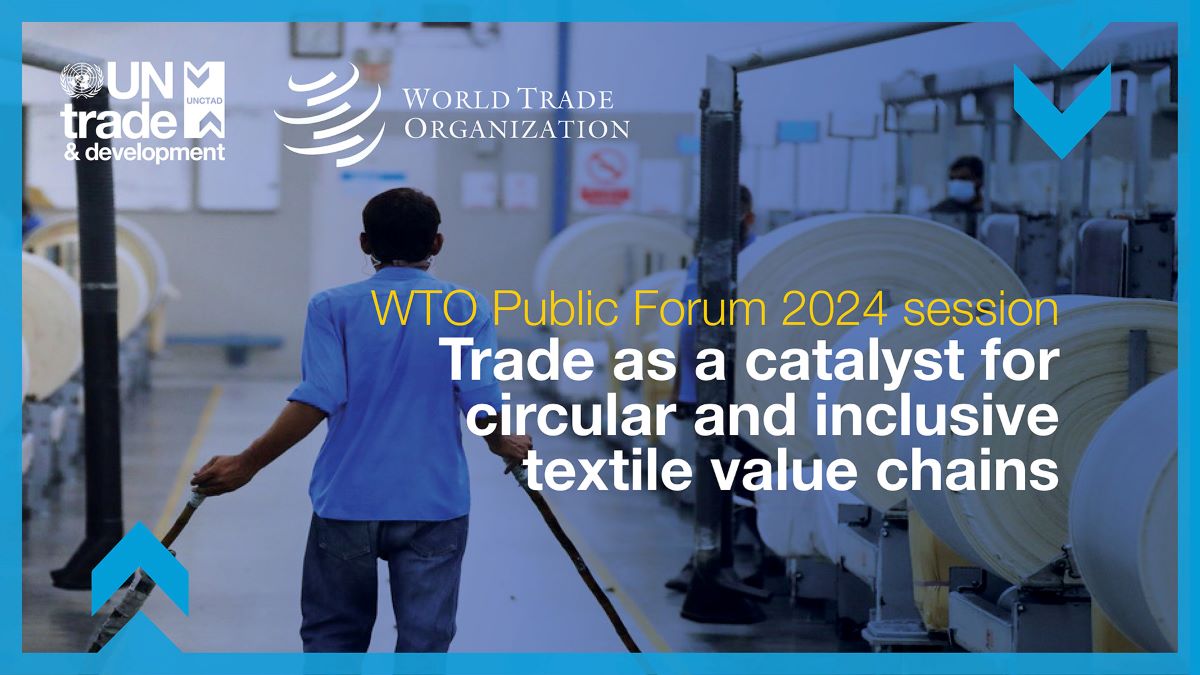Governments around the globe are introducing policies for a more resource-efficient and circular economy to address the increasing demands on the environment by emissions, pollution, ecosystems degradation, and material use from economic activity.
However, in many cases the potential of circular economy policies and business models remain untapped in international value chains. The textile sector is an important example, in which progress towards circularity has occurred, but real progress remains elusive.
With the textiles sector being essential to deliver inclusive social and economic development in many countries, its implications for global environmental stressors, especially energy use, water usage and a strong reliance on synthetic (plastic) fibers puts the sector at the forefront of discussions around circular value chains.
As part of the 2024 Public Forum of the World Trade Organization (WTO), this session explores how trade dimensions could accelerate circular business models in textiles, such as by improving cross-border waste flows, strengthening waste definition criteria, customs procedures, product standards and labeling.
Assuming that a circular textiles system can also maximize the benefits of trade in various dimensions, this session will discuss important policy dimensions conducive of trade in novel fibres, upcycling of post-industrial and post-consumer residues; trade-in-services enabling less water-intensive processes and data transparency in textile value chains.
Practitioners' voices, such as policy experts, leading businesses, and civil society actors in producing countries will highlight initiatives and opportunities to strengthen the circularity in the textile sector, focusing on improved design of environmental and trade policy.
Registration
Participation is in-person only and requires registration at the WTO Public Forum 2024.
Programme
Moderator
- Mr. Neil Swanson, National Board of Trade Sweden
Speakers
- Dr. Jack Barrie, Senior Research Fellow, Chatham House
- Ms. Nesli Al Mufti, Global Government Affairs Lead, H&M
- Dr. Yasir Nawab, National Textile University, Pakistan & FCDO-UNCTAD SMEP Programme partner
- Ms. Beatriz Fernandez, Programme Management Officer, Industry and Economy Division, UNEP
Related
Topic
Trade and environmentProgramme
Project
Event
- WTO Public Forum 2024 session: The new plastics economy – how to make a transition possible
- WTO Public Forum 2024 session: Disability inclusive trade – leveraging digital technologies to make trade work for all
- WTO Public Forum 2024 session: Trade as a catalyst for circular and inclusive textile value chains
Contact
Mr. Henrique Pacini
UN Trade and Development (UNCTAD)
[email protected]
Mr. Neil Swanson
National Board of Trade Sweden
[email protected]


